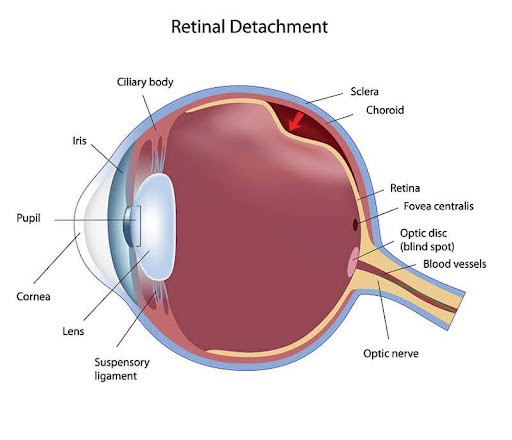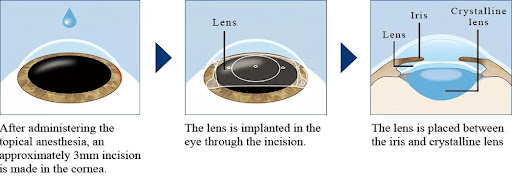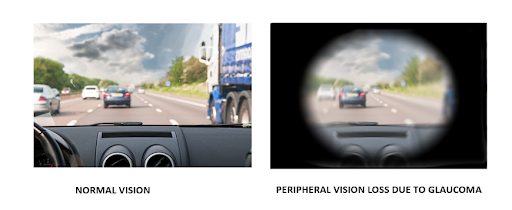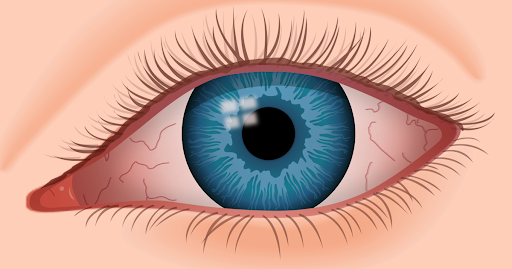Retinal detachment is an eye-threatening condition that demands immediate attention and intervention. It happens when the retina—a thin layer of tissue at the back of the eye—pulls away from its normal position, resulting in permanent vision loss or blindness if left untreated.
Contacting an ophthalmologist such as Paik Dong Won and Jung Sae Rom from Eyeonce Eye Clinic can help save your vision. Their vast medical experiences and advanced technologies will surely exceed your expectations when treating retinal detachment.
Request an appointment: https://rb.gy/x3diy
3 Types of Retinal Detachment
Retinal detachment can be classified into three types:
- Rhegmatogenous Retinal Detachment (RRD) – This is the most prevalent type of retinal detachment, which occurs when a tear or hole in the retina allows fluid to accumulate between the retina and the underlying layers, leading to detachment.
- Tractional Retinal Detachment (TRD) – This type of retinal detachment happens when scar tissue grows on the retina’s surface, causing the retina to pull away from the underlying tissues at the back of the eye.
- Exudative Retinal Detachment (ERD) – This type of retinal detachment is primarily caused by age-related macular degeneration, injury, or inflammation. When this happens, fluid accumulates beneath the retina.
It is worth noting that each type of retinal detachment is caused by several factors that make the retina pull away from the back of the eye. It is also imperative to get dilated eye exams regularly from your trusted eye clinic, such as Eyeonce Eye Clinic, for early detection.
Risk Factors
Anyone can have a retinal detachment; however, the following factors may increase your risk of having it:
- Aging – As we age, the vitreous gel inside the eye can shrink and pull away from the retina. People over 50 have a higher risk of tears and holes in their retinas, which can cause detachment. That is why you should have a regular eye exam to detect any early signs of this sight-threatening condition.
- Previous eye surgery – Any eye-related surgery, such as cataract surgery or a previous retinal detachment in one eye, can increase your chance of retinal detachment. This is mainly because your eye’s structure and vitreous gel change.
- Family history of retinal detachment – If you have a family history of retinal detachment, there is a higher likelihood that you may experience the condition yourself. This fact emphasizes the significance of being aware of any concerning eye symptoms. Seek immediate professional care!
- Extreme Myopia – Individuals with extreme nearsightedness (myopia) are at a heightened risk of having a retinal detachment. Myopia causes the eyeball to elongate, making the retina more susceptible to tears and detachment.
- Previous eye injury – Any significant trauma or injury, such as blows or accidents to the eye, can increase the risk of retinal detachment.
- Other types of eye disease or disorder – Certain eye disorders or conditions like retinoschisis, uveitis, or lattice degeneration can raise the risk of retinal detachment.
It is highly essential to be aware of these risk factors. At Eyeonce Eye Clinic, we will provide you with one-on-one consultations so you will be fully aware of your condition. Our ophthalmologists will also give you options that best address your retinal detachment.
Vision Correction Option: https://rb.gy/1e6no
Symptoms
Detecting the symptoms of retinal detachment early is crucial for prompt treatment. Most warning signs include:
- Appearance of floaters – Specks or dark spots that drift across your vision field.
- Flashes of light in one or both eyes – They usually appear in your peripheral vision.
- Curtain effect – Experiencing a shadow or curtain-like obstruction over your visual field.
- Blurred vision – Experiencing a distorted or reduced vision that worsens over time.
- Gradual loss of peripheral vision – Noticing a gradual or sudden loss of side vision.
Schedule a consultation with your eye care professional if you are experiencing the symptoms of retinal detachment. Here at Eyeonce, we provide immediate and accurate medical attention to save your vision. Our eye doctors see to it that they utilize advanced equipment such as Daytona Optos (Ultra-wide field retinal scanner) to determine retinal detachment.
Diagnosis and Treatment
Eyeonce Eye Clinic’s eye care professionals diagnose retinal detachment through a comprehensive eye examination, which involves the following tests and procedures:
- Visual Acuity Test – This test evaluates how well you can see at various distances.
- Ophthalmoscopy – Our ophthalmologists examine the retina and other structures at the back of the eye using our special equipment, the IOL Master 700 (Contactless Cataract Ophthalmoscope) and the Daytona Optos (Ultra-wide field retinal scanner)
- Ultrasound – In conducting this ultrasound test, our eye doctors utilize the AB-SCAN (Ultrasound) to view the retina when it is not easily visible.
After diagnosing your condition, the treatment options for retinal detachment depend on the severity and type of detachment. Some of the standard treatment methods include:
- Laser Surgery – This is highly recommended for repairing small retinal tears and holes.
- Cryotherapy – This is done to freeze the area around the retinal tear to create scar tissue that helps seal the retina to the underlying tissue.
- Pneumatic Retinopexy – This treatment option injects a bubble into the eye to push the retina back into place, followed by laser or cryotherapy.
- Scleral Buckling – Done by placing a silicone band around the eye to push the wall of the eye against the detached retina.
- Vitrectomy – This treatment removes the vitreous gel to release tension on the retina and replaces it with a gas bubble.
If you want to learn more about these treatment options, schedule an appointment with our ophthalmologists at Eyeonce Eye Clinic. Visit our website to get started!
Why choose Eyeonce Eye Clinic Gangnam for retinal detachment treatment?
Utmost Patient Care
Here in our clinic, we ensure to give you your money’s worth. We guarantee you receive the best medication possible and assure them you are guided and understood, making you feel comfortable and confident at every step.
Comprehensive Consultation
Our eye care professionals at Eyeonce Eye Clinic offer comprehensive eye examinations to evaluate your eyes and assess what retinal detachment treatment is best for you. Our ophthalmologists take their time to cater to your questions and address your concerns, ensuring you make an informed decision about our vision correction options.
Expert Eye Surgeons
Our ophthalmologists, Head Director Dr. Paik Dong Won and Medical Director Dr. Jung Sae Rom, are highly knowledgeable and skilled in treating retinal detachment. They always use the latest techniques and technologies to ensure optimal results.
Frequently Asked Questions (FAQs)
No. Retinal detachment is relatively painless; however, the sudden appearance of symptoms like floaters and flashes can be an extreme nuisance and should not be ignored.
Yes. Untreated retinal detachment can cause permanent vision loss and blindness.
The recovery time varies depending on the severity of detachment and the treatment method. Roughly, it can take several weeks or months.
Conclusion
Retinal detachment is a serious eye condition that demands immediate attention and treatment. It is essential to recognize its symptoms and seek prompt medical attention from expert ophthalmologists such as Eyeonce Eye Clinic in Gangnam, South Korea. Our clinic offers safe, high-quality treatment based on experience and extensive research. We closely examine each patient’s physical condition for a customized treatment plan. Book an appointment with us today to achieve that clear vision you deserve!



